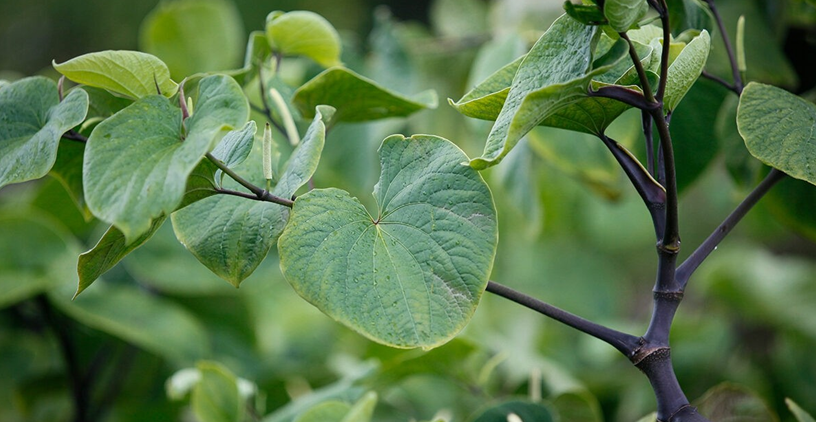Updates
Want to Try Kava? Here’s What You Need to Know
Kava is a traditional Pacific Island beverage with powerful, relaxing properties. Its combination of active ingredients makes it both a sedative and an anxiolytic (anxiety- reducing) agent. Kava has also been shown to have antioxidant and antimicrobial properties. Researchers believe its stress-alleviating effects are linked to the presence of the kavalactones in kava root; these stress-reducing compounds are responsible for the majority of kava’s benefits. The problem is that not all kava supplements contain the same amount of active ingredients, making some less effective than others. To reap the full benefits of kava, you’ll want to make sure your supplement contains a high concentration of kavalactones before buying one.
What are the benefits of kava?
While each of the following benefits have been reported after consuming kava, the research is not conclusive and the benefits have not been proven through trials. That said, no significant side effects of kava have been observed after consumption, so there should be no harm in trying it out to see if it works for you. Kava has a long history of use as a mood-altering substance and as a traditional medicine. Because of its long history, there are many claims about what kava does and how it works in the body.
While some of these have been proven, others have not. Some of the benefits of kava include: Kava is used to relieve anxiety and promote sleep. Kava can decrease the perception of pain and the need for pain medications. Kava may improve mood, attention span, and ability to focus. Kava may be helpful for treating asthma, allergies, and other respiratory conditions. Kava is sometimes used to prevent motion sickness. Kava has been found to have antioxidant and antimicrobial effects.
Kava for stress relief
Kava is believed to reduce stress and promote relaxation as a result of the kavalactones it contains. The kavalactones in kava root bind to receptors in the brain and reduce the body’s response to stress. Compared to a placebo, kava was found to relieve stress significantly after 6 weeks of use. Kava seems to work best when taken in combination with other stress-reducing practices like meditation or yoga. Kava seems to have a synergistic effect with other relaxation methods, meaning it works better in combination with these practices than it does alone. If you’re experiencing high levels of stress, kava may be able to help you relax and reduce feelings of anxiety. Keep in mind that kava doesn’t provide quick-acting effects. Instead, it takes at least 6 weeks of consistent use before it begins to reduce stress.
Kava for anxiety relief
Kava has been shown to reduce anxiety by directly targeting receptors in the amygdala that cause the feeling of anxiety. Compared to a placebo, kava was shown to reduce anxiety significantly after 6 weeks of use. The effects of kava on anxiety are similar to its effects on stress. Kava takes at least 6 weeks before you notice a reduction in anxiety symptoms. If you’re dealing with severe anxiety and/or panic attacks, kava is unlikely to provide lasting relief. Instead, it appears that kava is best for treating general feelings of anxiety. If you feel anxious regularly or find yourself in situations where you would benefit from reducing anxiety, kava may be worth a try.
Kava for sleep aid
Kava has been shown to have a mild calming effect and to increase the length of time people spend in the first stages of sleep. When compared to a placebo, kava reduced the time it took for people to fall asleep by about 12 minutes. While kava does little to reduce the time it takes to fall asleep, it may help you stay asleep and reduce the amount of time spent in the lighter stages of sleep. Kava has also been shown to reduce the number of times people wake up at night and to increase the total amount of sleep people get per night. If you struggle with insomnia or wake up frequently during the night, kava may be able to help you by extending the length of time you spend in the first stages of sleep.
Is kava safe?
Kava is safe to consume when it’s purchased from a reputable company and prepared correctly. The risk of side effects depends on the amount of kava you consume and the quality of the kava supplement you purchase. While kava is safe to consume, it’s important to note that there may be an increase in side effects among people who are taking other medications. Kava is thought to be a CYP450 inhibitor and may increase the effects of other drugs in the body. Because of this, it’s important to talk to your doctor before using kava or any other supplements. A doctor can help you identify any potential interactions and decide whether it’s safe for you to use kava. While no side effects have been observed with kava at low doses, some people may experience negative reactions after consuming kava. Keep in mind that reactions are more common the higher the dose you consume and the longer you take kava. Some of the side effects associated with consuming kava include: Dizziness Nausea Urinary problems Muscle spasms Confusion
The bottom line
Kava is a traditional Pacific Island beverage with powerful, relaxing properties. Its combination of active ingredients makes it both a sedative and an anxiolytic (anxiety-reducing) agent. Kava has also been shown to have antioxidant and antimicrobial properties. Researchers believe its stress-alleviating effects are linked to the presence of the kavalactones in kava root; these stress-reducing compounds are responsible for the majority of kava’s benefits. The problem is that not all kava supplements contain the same amount of active ingredients, making some less effective than others. To reap the full benefits of kava, you’ll want to make sure your supplement contains a high concentration of kavalactones before buying one. To learn more about Kava, please visit EastWestHerbal.com



















